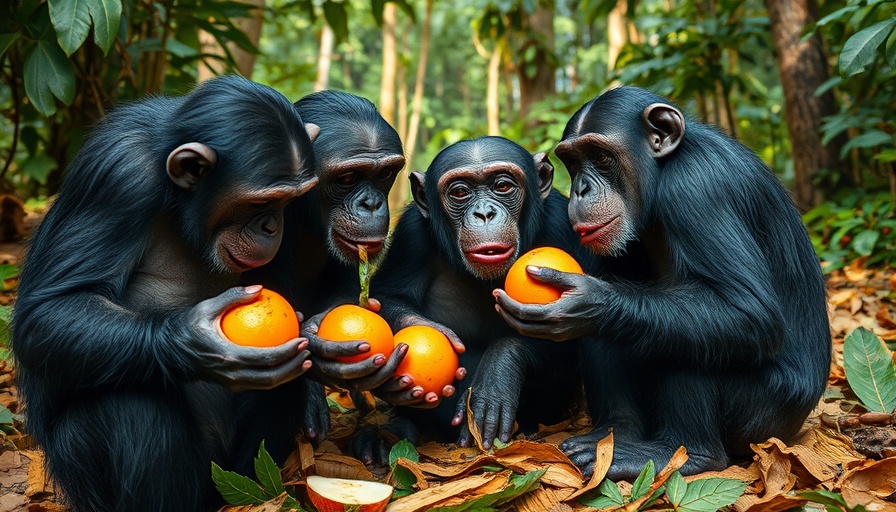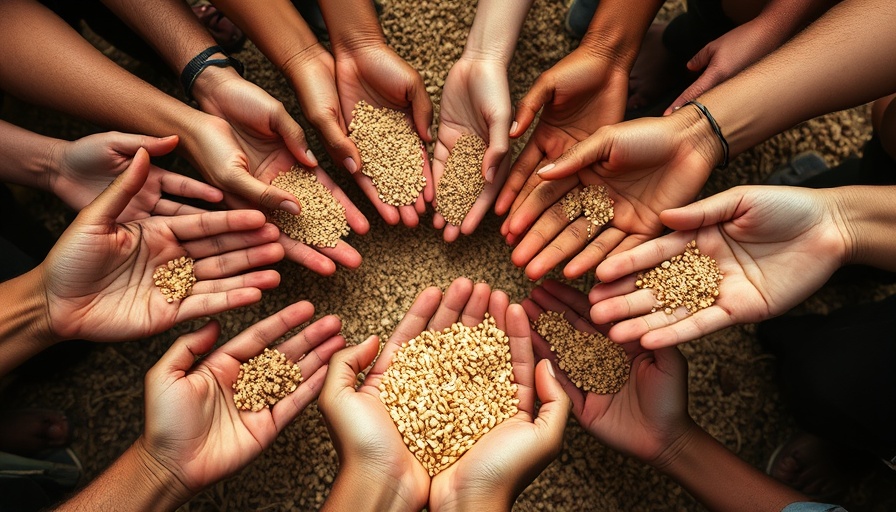
Chimpanzees Discovering the Joy of Fermented Fruits
In a remarkable breakthrough, researchers captured wild chimpanzees on camera indulging in fermented African breadfruit (Treculia africana) in Guinea-Bissau’s Cantanhez National Park. For the first time, this behavior raises numerous questions about the complex social dynamics and potential alcoholic preferences of these remarkable primates.
What Alcohol Means for Animals
The intriguing study led by Anna Bowland from the University of Exeter showcased chimpanzees consuming fruit with an alcohol content of 0.61 percent Alcohol By Volume (ABV). While this might seem low, it prompts further questions about the role of alcohol-like substances in animal behavior. Humans often associate alcohol consumption with social bonding through the release of dopamine and endorphins, suggesting that chimpanzees may experience similar feelings, engaging in social bonding when they share these fermented fruits.
Why Are Chimpanzees Sharing Their Boozy Bounty?
Sharing food among chimpanzees is not an everyday occurrence, which makes these instances of sharing fermented fruit particularly noteworthy. The researchers observed this behavior on ten occasions using motion-activated cameras. These moments could indicate the significance of alcohol in forming social bonds among chimps, similar to how humans partake in communal drinking activities. This behavior might be indicative of complex social structures and emotional interactions within their communities.
Wider Implications of Alcohol Consumption in Wild Chimpanzees
The implications of these findings extend far beyond just curious animal behavior. The chimpanzees’ dietary habits could hold answers about the evolutionary past of both humans and primates. The research hints at an ancient adaptation that allows African apes to metabolize alcohol effectively, thus suggesting that the consumption of fermented foods may have historical roots within our lineage.
The Evolutionary Link Between Chimps and Humans
This research is essential in understanding the evolutionary connections between chimpanzees and humans. The sharing of ethanolic fruits may signify a long-standing component of social behavior that predates modern humans. The authors of the study highlight how the extensive presence of the African breadfruit throughout the continent could support these findings, suggesting that such practices might have been prevalent among our ancestors as well.
Summing It Up
The discovery of wild chimpanzees consuming and sharing fermented fruits presents a fascinating insight into their behavior and social structures. While extensive research remains to be undertaken, these behaviors challenge previously held notions about animal diets and social interactions, underscoring the complexity of chimpanzee societies.
 Add Row
Add Row  Add
Add 




Write A Comment